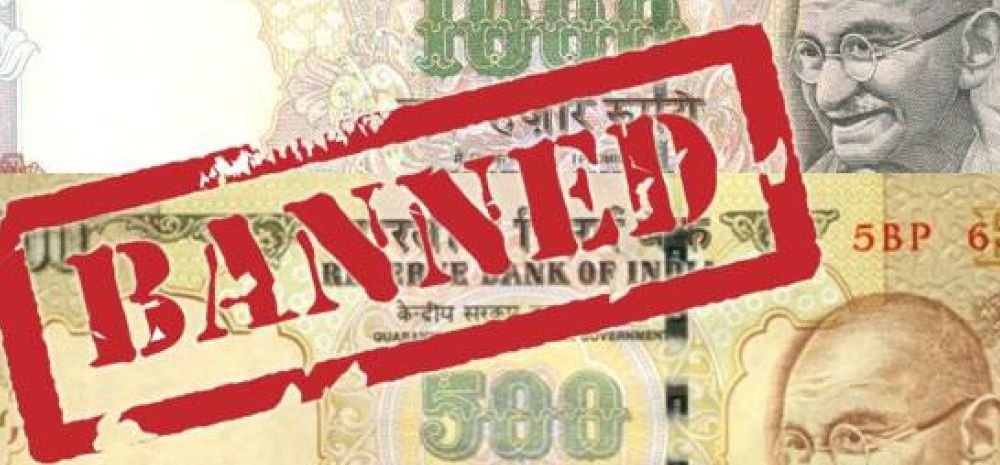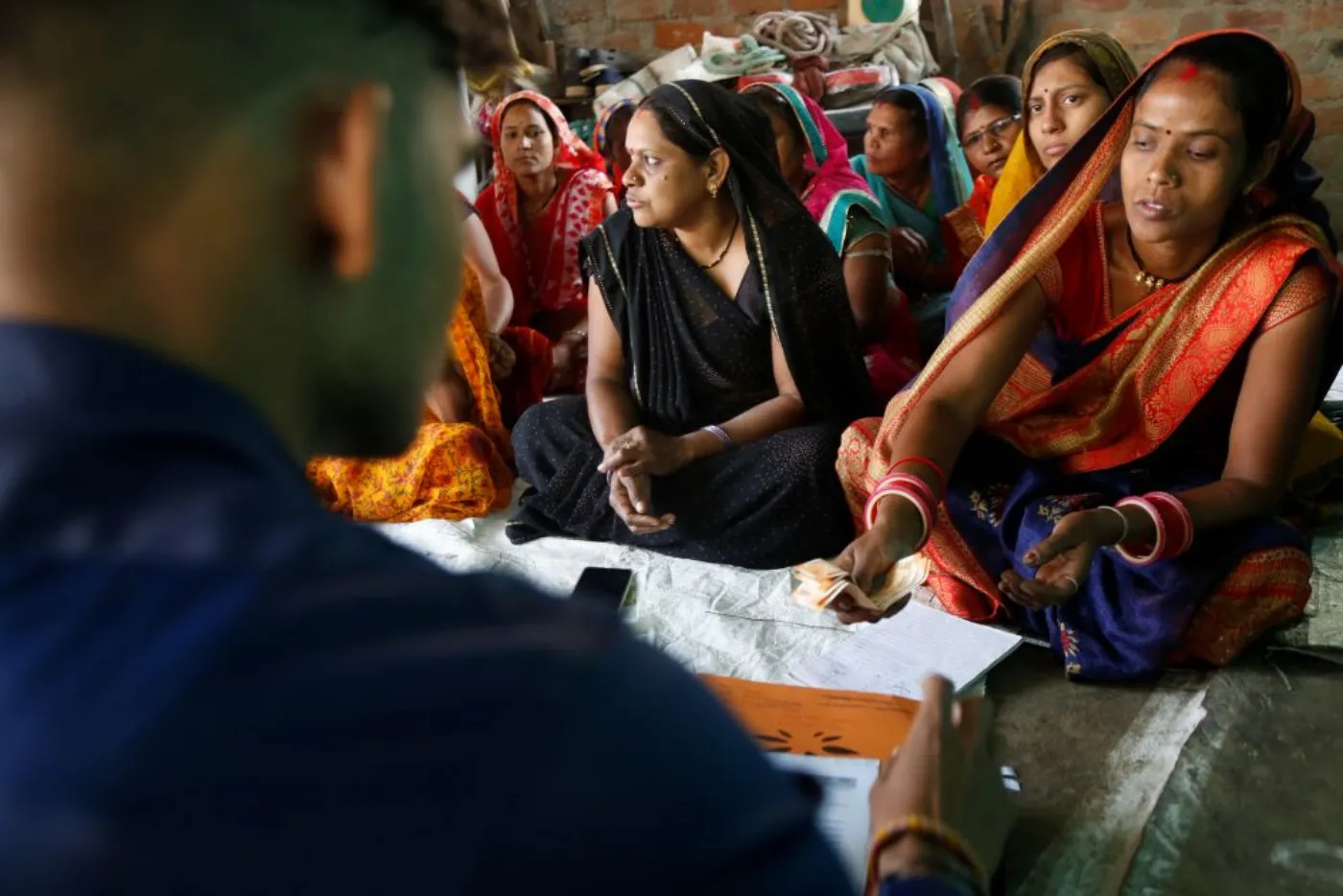Content warning: domestic violence and gendered violence
It has been two years since the BJP-led Indian government demonetised ₹500 and ₹1,000 banknotes. Needless to say, the move was met with significant controversy. The cash scarcity created as a result led to significant economic disruption and long, panicked queues of people attempting to make cash exchanges at bank offices, capped at ₹2,000. The majority of economists, including Nobel laureate economists Amartya Sen and Paul Krugman, and former World Bank Chief Economist Kaushik Basu, criticised the policy. However, some, such as noted Harvard economist Jagdish Bhagwati, praised it. Moreover, the Reserve Bank of India, under the leadership of Governor Urjit Patel, came out in support of the government’s decision.
One of the key sources of controversy surrounding this large-scale experiment with demonetisation, outside of macroeconomic consequences, was the short-term human cost it came with. Low-income people who were unable to access banking infrastructure were forced to lose their savings.
Those individuals who did have access to banking infrastructure had to wait in excessively long queues for cash exchanges, which small, dispersed bank offices (particularly in rural areas) were ill-equipped for – forcing these people to take multiple crucial hours off work and resulting in, according to some news reports, deaths due to standing in queues. Hospitals refused cash payments in these notes, resulting in the healthcare infrastructure being damaged. Demand for goods and services reduced, hurting the prospects of small businesses, particularly businesses in India’s massive unorganised sector.
Also read: Demonetisation, Drama And The Debacle: Decoding Our ‘Larger Good’
However, one of the most underdiscussed elements of this human cost was the fact that it was gendered. Women, LGBTQ+ individuals, and gender nonconforming individuals bore the massively disproportionate brunt of the effects of demonetisation. The example of demonetisation serves as further evidence that, in societies with deeply entrenched patriarchal structures (almost every society in the world), economic harms are gendered. Damage done by policies such as demonetisation should always be remembered; after all, the point of understanding history is to correct our mistakes in the future.
There are three specific ways in which the damage created by demonetisation was gendered. First, women are systemically less likely to have access to banking infrastructure. This results in depleted savings and economic opportunities. Second, transgender, genderqueer, and gender nonconforming individuals were uniquely hurt due to their inability to access banks, worsening structural discrimination against them. Third, many workers in the unorganized sector and engaged in activities such as domestic work and sex work, who are often women, lost a significant proportion of customers and large portions of their savings.
1. The Negative Effects Of Demonetisation On Women Without Access To Banking Infrastructure
There are two significant ways, directly, in which demonetisation’s effect was most acute on women. First, women are systemically cut off from access to banking. A 2015 report by the UNDP found that India is one of the 38 countries where over 80% of women do not have bank accounts (see page 112 of the report). While there have been significant increases in this number since 2015, women are still uniquely disadvantaged when it comes to financial inclusion. Numerous factors are causing this. For one, patriarchal norms suggest that finances should be handled exclusively by men. In addition, barriers to higher education for women lead to a structural lack of financial literacy. This means that women lost the savings that they independently maintained.
Second, as Nitisha Jha of Scroll explains, “Many women save all their money in cash, often without anyone else knowing about it. It buys them food for their children, medicines when they fall ill. And for those who are victims of abuse, it is a much-needed safety net.” This is cash that women in patriarchal households don’t tell their families about. It is a safety net that was lost the moment demonetisation occurred. In particular, this safety net exists for women who are often the sole breadwinners of their families, even though they are the ones bringing money home to feed and educate their children and give themselves financial security.
The reported showed an increase in domestic violence when men realised their wives were saving money without their knowledge.
Lavanya Mohan of The News Minute writes, “Women from lower-income households (especially those with abusive husbands and families) also hoard cash, but for entirely different reasons. Most of these women are the sole breadwinners of the family who earn money by working through multiple laborious, low-paying jobs, only to have their money taken away from them by their husbands. Their secret ‘savings’ end up feeding and clothing their children and paying for their education.“
Demonetisation destroyed this crucial safety net. In many instances, furthermore, this led to gendered violence. The One Stop Crisis Centre in Bhopal reported an increase in domestic violence when men realised their wives were saving money without their knowledge.
2. The Negative Effects Of Demonetisation On Non-Cisgender And Non-Binary Individuals
Significant populations of genderqueer, gender nonconforming, genderfluid, and transgender individuals in India were negatively impacted by demonetisation. There are two specific ways in which this harm manifested.
First, communities of non-cisgender people – I use ‘cisgender’ in the broader meaning of ‘people whose gender identity exists within the binary and corresponds to the sex they were assigned at birth’, as opposed to simply ‘people who are not transgender’ – are systemically cut off from the banking sector. Why? For one, merely entering a bank could be a source of marginalisation for these individuals. In addition, they are actively discriminated against and prevented from accessing financial infrastructure.
Moreover, they often can’t access ID cards, which are often required to open bank accounts, because of authorities refusing to give them ID cards according to their actual gender and because of their inability to access documents like birth certificates. Even if they do have ID cards, often, their ID cards don’t match their current gender identity, which leads to them facing interrogation about their identity. Lastly, merely standing in a queue could lead to harassment. All of this meant that demonetisation had a devastating impact on non-cisgender communities, who lost significant portions of their savings.
Second, in many instances, the source of income for communities of non-cisgender individuals is beggary or sex work, due to systemic poverty and homelessness among these communities. The cash crunch meant that these activities were structurally less possible, further hurting these individuals.
3. The Negative Effects Of Demonetisation On Workers In The Unorganised Sector, Particularly Sex Workers
Female workers constitute the majority of workers in the unorganised sector in India. As the unorganised sector operates primarily on the basis of cash, the cash crunch significantly damaged the income of these workers.
Merely entering a bank could be a source of marginalisation for those belonging to the non-cisgender communities.
In particular, sex workers were uniquely hurt for three reasons. First, there was a significant demand reduction because people were less willing to pay large sums of money in cash for sexual services. Second, there was a corresponding increase in supply, because lots of women in the unorganised sector were forced into professions like sex work, in addition to working other jobs, to make sufficient money to feed themselves and their families. This resulted in increased competition for sex workers, reducing their incomes. Third, sex workers are also socially ostracised – this means they too are likely to be cut off from accessing banking infrastructure and thus, lose access to their savings during demonetisation.
Indeed, as Prabeerkumar Sikdar of The Times of India explained, “The currency ban has virtually grounded the underground sex industry with NGOs working with 60,000 sex workers in the state, including 25,000 in the capital, reporting a sharp 90% dip in business. With clients unable to shell out lower denomination notes, the majority of sex workers are in a fix as they neither have bank accounts to dig into savings nor know alternative livelihood skills for survival in a cash-crunch economy. The worst-hit are those who solicit clients on the street, including bus stands and railway stations. They come from villages and are often driven by poverty to take up the profession.“
Also read: Why Demonetisation Is A Feminist Issue
There is one main takeaway from all of this. Economic policy is inseparable from societal injustice and deeply entrenched norms such as patriarchy, because all economic policy happens in the context of patriarchal oppression. Thus, the negative economic consequences of any macroeconomic policy decision translate into harms that are gendered. This serves as evidence of the extent to which sexism is entrenched in society and underlines the need to keep elements such as race and gender in mind when crafting economic policy.
Tejas is a junior in high school, a blogger, and a debater. He blogs at TejasSubramaniam.com. In addition, he has participated in the World Schools Debating Championship twice for India, and was a finalist and the 10th best speaker in 2018. Follow him on Twitter and Medium.




